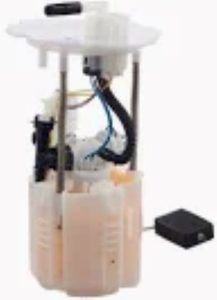Performance of fuel pumps have a big impact on fuel economy because in addition to developing proper pressure, the pump must deliver the precise volume of fuel needed to maximize engine combustion at any given RPM. The modern fuel pump in these fuel injected systems runs at circa 40-70 PSI to ensure proper amounts of fuel are delivered to maintain optimal air to fuel ratios. If fuel pressure is too high or too low, then the fuel-to-air ratio in the engine is unbalanced, causing it to combust poorly, and resulting in a loss of PP miles per gallon (MPG) of up to 10%. This inefficiency raises fuel consumption and therefore negatively affects fuel economy.
An out-of-order fuel pump could result in uneven supply of gasoline thus, the engine has then to consume more gasoline to get balanced with it. Previously, studies indicated up to 5–15 percent fuel loss, especially at heavy acceleration when the engine demands the most fuel, on the engines runs with irregular fuel pressure. Vehicles which enjoy higher performance, requiring pumps with output ratings above 250 liters per hour, are particularly affected as any alleviation in fuel flow directly affects power output and MPG.
Immediate deliverable fuel is necessary for the proper timing of injection as commanded by the electronic control unit (ECU). If a fuel pump is not able to keep this steady flow, the ECU becomes unable to properly determine how much fuel to inject, causing either over-fueling or under-fueling. That imbalance not only decreases fuel economy over time, it also can result in clogged injectors which can result in expensive repairs. A recall issuing the same year forced thousands of vehicles off the road as fuel pump failures prevented access to fuel economy, which underscores not only the financial achievement of good fuel pump efficiency, but also the downside for drivers and manufacturers alike in the absence of it.

We can make these fuels different, like adding heat and ethanol mixing, which will make the texture more complex for the efficiency of the fuel pump. Ethanol can create up to 20% less efficiency in a pump due to increased internal wear adding turbulence and reducing flow consistency over time. Ethanol tends to break down deposits more quickly, so if you run a lot of ethanol-blended fuel, regular fuel pump maintenance is key for keeping that MPG up. Even the smallest components, such as fuel pumps, play a crucial role in gas mileage, as motor vehicle expert Ed China explains, saying, “Efficiency relies on every part doing its job,” with further emphasis on the importance of a reliable fuel pump in fuel economy.
A suitable Fuel Pump correct for the fuel delivery needs of the car may avoid fuel overflow, will extend the working life of a car, provide big fuel economy support to the driver and ensure the fuel delivery system functions cosectively, thus keeping a home propulsion system healthful.
